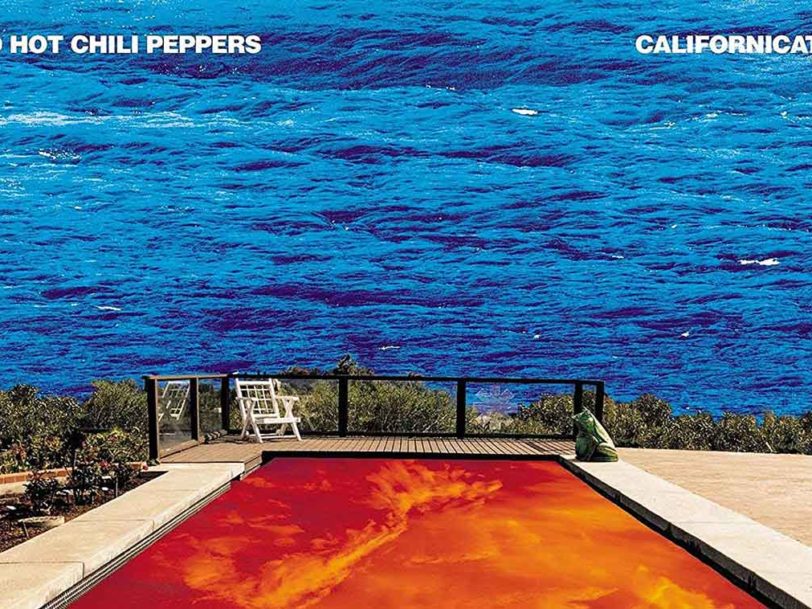Through the mid-90s, Red Hot Chili Peppers’ rebellious antics had grown to cartoon-like proportions. Performing on stage while wearing flaming helmets, and turning up for photo shoots wearing nothing but socks… on their penises… the group’s frat-house humour had been a defining element throughout their career. With their 1999 album, Californication, however, the group began to show a more mature, serious side.
Listen to ‘Californication’ here.
“Tales of wandering souls who’ve lost their way”
While writing the songs that would eventually make up Californication, Chili Peppers’ frontman, Anthony Kiedis, and guitarist John Frusciante spent the summer of 1998 reflecting on their personal struggles with addiction. Kiedis later said their goal was to “tell tales of wandering souls who’ve lost their way searching for the American dream in California”. With six out of the album’s 15 songs mentioning The Golden State, they made their intensions clear from the outset.
Explosive album opener Around The World kicks things off in classic Chili Peppers fashion: Flea lays down a funky bassline while drummer Chad Smith holds things together with intricate kit work. Meanwhile, Kiedis’ hip-hop-inflected verses are broken up by a melodic chorus. According to the singer, the lyrics were inspired by his own travels, as well as Roberto Benigni’s 1997 film, Life Is Beautiful. Released as the second single from Californication, Around The World peaked at No.7 on the Billboard Modern Rock Tracks chart and has since become a staple in the group’s live performances. Updating the sound of West Coast rock for the alt-generation, it also found a second life in the late 2000s, when a remix of the song briefly soundtracked Disney California Adventure Park’s California Screamin’ rollercoaster.




